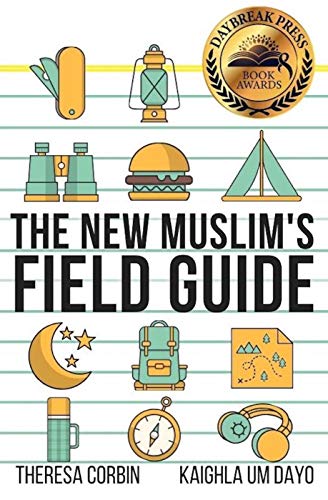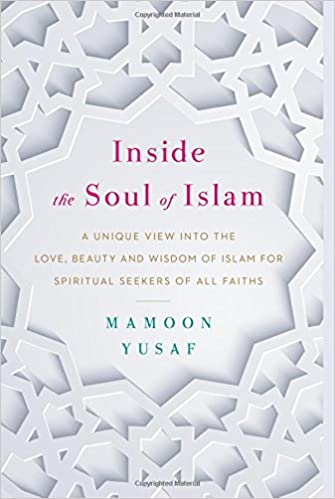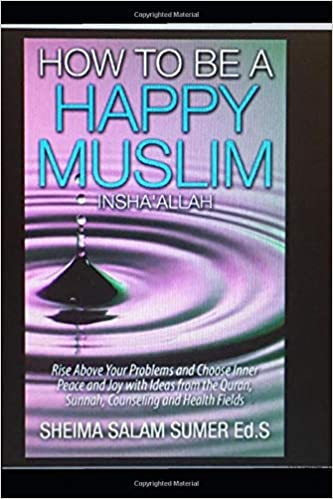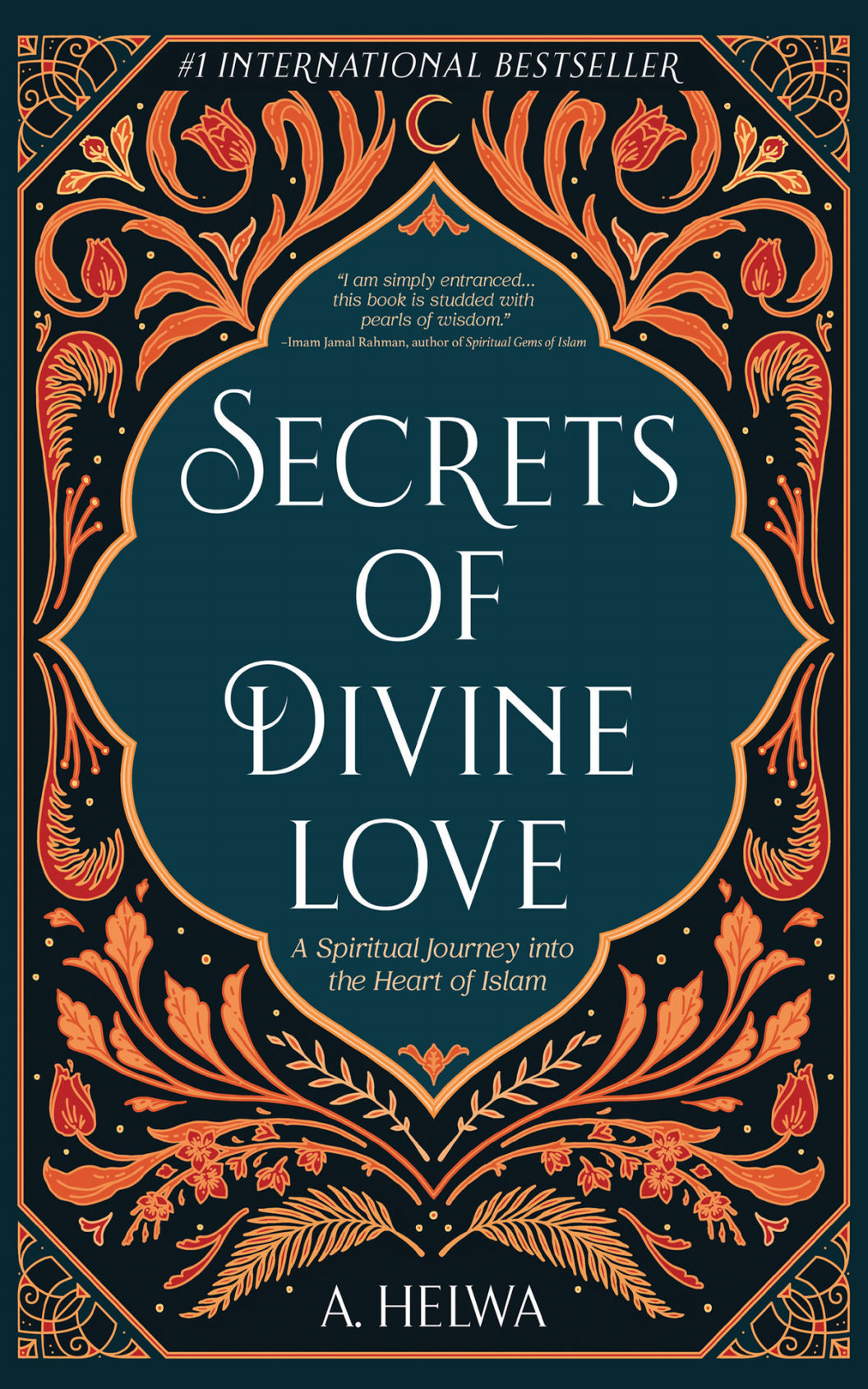
The Saints and Sainthood
© A.R.Miller, 2022
This article will deal with an Islamic view of the Saints as categorized by the Catholic and other Christian churches, so that new reverts and those considering Islam and even those who are just interested, who may be accustomed to the practice of Saint veneration from the Christian practice, can understand this from the Islamic point of view.
It is the hope and desire of the presenter/author of this material to help build the bridge between the two religious traditions and help the reader understand the differences.
I reverted to Islam from Catholicism, and as a former Catholic, I had a lot of experience and knowledge of the Catholic Saints. I always wondered how would this fit, or can it even fit, into Islam? Would I need to rethink and give up on everything I knew? Were there similar holy people (like the Christian saints) in Islam? Were there any practices such as veneration? All these questions I had moved me to do a little digging and come up with this brief article on it. And with the help of the team at UntoIslam, this is where we landed.
That is why I state that there is quite a long period of change and adjustment needed for individuals that may be steeped in a tradition (Catholic or otherwise), perhaps practicing saint veneration all their lives, to then adjust and become acclimated to the Islamic viewpoint if they do indeed revert to Islam. And for this exact reason, my hope is that the following may help.
A Saint, in the classical definition, is a person that obtains exceptional “holiness”, or “closeness” to God our Creator.
The English word comes from the Latin “sanctus” and Greek “hagios”.
Saints can be found in nearly every religion in the world, including but not limited to:
Christianity (Saint) in the traditions of Catholic, Orthodox, Anglican, Lutheran, et al
Judaism (Tzadik) (word is the same in Yiddish and Hebrew)
Islam (Wali)
Buddhism (Arhat)
And many others.
Each respective group ascribes characteristics to those considered “saints”. In general, it is someone, a man or woman, who lives a life of exceptional holiness and may (or may not) have performed miracles. They are people that can touch the inner lives of others and have a powerful influence on them. A good example would be Saint Francis of Assisi, whom we will discuss a bit later.
In Judaism, the term for saint is “Tzadik” which means “righteous” coming from the root word “Sadiq” which means justice. I am not sure why the spelling is “TZA”, because it is pronounced “Sa”.
In Islam, the term for saint is “Wali”, which means “friend of Allah (God)”.
In Buddhism, the term “Arhat” describes someone who has reached a state of Nirvana, or having left this world for heaven.
Interestingly, some Protestant Christian traditions do not accept the “Saints” that are recognized by the Catholics and others stating that “this is something invented by the Pope and his Church” and “that veneration and intercessory prayers are akin to idol worshiping”, which is a very strong statement that we will have a look at a bit later as well.
LIVING A HOLY LIFE
Let's first have a look at some Christian saints, and what it means to live a holy life. In our lifetime, we know of Mother Teresa, who died in 1997, and was known for living amongst the extremely poor of Calcutta, India and doing wonderful charitable work there. She gave up everything and devoted herself to this cause, caring for the hungry, homeless, lepers, and all the uncared for. Giving up everything and devoting your life to the cause of the poor is what the prophet Jesus (PBUH) told his followers to do. So she is a good example.
Another holy person who died in 1968 is Francesco Forgone, better known as Padre Pio, who while he is famous for his stigmata, should be better known for his unselfish dedication to the poor and his directing people to “recognize God in all things and to desire above all things to do the will of God”. Padre Pio was not a “smart/educated” man (he needed special tutoring to pass the exam to enter the priesthood), he was constantly sick, and was verbally ridiculed by his superiors. When Pope Paul VI was asked why Padre Pio was so famous during his lifetime, the Pope answered “Why? Perhaps because he was a philosopher? Because he was wise? No, it is because he said Mass humbly, heard confessions all day and night, was a man of prayer and suffering”. This was the Pope’s way of hitting back at those who ridiculed Pio and stated the fact that he was a simple, honest, hardworking man.
The final Christian saint we will have a look at is Francis of Assisi (died 1226). He is best known for being a young man who came from wealth, and gave it all away, and lived a life of extreme poverty, giving up everything in this world and living just on what God would provide him. What is really fascinating about him is that even some protestant denominations, such as Lutheran and Anglican, acknowledge his work. What is really fascinating about him is that he truly did follow what prophet Jesus (peace and blessings upon him - PBUH) called on his followers to do, in a literal sense, gave up everything, again “everything” (family, home, wealth). This could be a discussion for another day, as the teachings of the prophet Jesus (PBUH) are not easy to follow in a literal sense.
Examples of living a holy life are of course found in Islam, and you will be surprised at the depth and historical knowledge there is of these men and women.
In the traditional Islamic understanding of saints, the saint is portrayed as someone "marked by [special] divine favor ... [and] holiness", and who is specifically "chosen by God and endowed with exceptional gifts, such as the ability to work miracles.
Of course, the Companions of the Prophet (PBUH) are a great place to start, and as you learn about them, be prepared to be astounded! When you say the name of any one of the companions, you are to follow it by “may Allah be pleased with them” (MAPT)
Some Companions are:
Abu Bakr (MAPT): one of the first converts, he was a rich man who gave all he had to the faith, and was with the Prophet (PBUH) through all his travels and campaigns. Upon Mohammed’s (PBUH) death, Abu Bakr said to the people “"If anyone worships Muhammad, Muhammad is dead. If anyone worships God, God is alive, immortal", thus putting an end to any idolizing impulse in the population. What tremendous insight he had and the courage to make such a declaration! He became the first leader, Caliph, of Islam after Mohammed’s (PBUH) death, and was instrumental in the “writing down” of the Quran.
Suhayb al-Rumi (MAPT) is an example of a wealthy individual who converted to Islam after meeting the Prophet (BPUH). He was captured and bound and not allowed to leave Mecca and migrate to Medina with the rest of the Companions and the Prophet (PBUH) because of his wealth. The people who tied him up and kidnapped him where the pagan worshippers that controlled Mecca at the time and wanted to eliminate the Prophet (PBUH), his religion and his followers. It would have been easy for Suhayb to simply cave in and denounce his new faith and return to idol worshiping (which he did all his life). However, so convinced was he in his heart that he could not, and so he gave it all away and was released. He went on to be a leader in his own right of the community.
Another wealthy individual who gave up everything for Islam was Abd al-Rahman (MAPT), who was one of the first 8 individuals to accept Islam. He was steadfast and served the Prophet (PBUH) without fail in every single way, and also was a leader of the community.
I mention Suhayb and Abd al-Rahman (may Allah be pleased with both of them) because like saint Francis, they gave up everything they had.
There are also later individuals, those who came a few hundred years later, that you may know or have heard of:
Rumi - who lived in the mid 1250’s, he is probably the best known “saint” outside of the Islamic world. His teaching and philosophy were one of God’s great love infusing the world. His writings and knowledge are second to none. Truly wonderful to read and study. A famous poem that confirms his commitment to the faith is:
"I am the servant of the Qur'an as long as I have life.
Rumi
I am the dust on the path of Muhammad, the Chosen one.
If anyone quotes anything except this from my sayings,
I am quit of him and outraged by these words.
There is so much about him that giving this small acknowledgement here does not seem quite fair, but perhaps we can dive more deeply into him next time."
Al Ghazali - who lived in the 1100’s, was a genius (on the highest scale, akin to DaVinci), who mastered every subject he undertook. And I am not just making a casual statement, he “Literally” mastered every subject he undertook. A truly brilliant man without equal, and whose writings and philosophies were even incorporated into early Christianity by the church fathers of antiquity. If you are a historian, you have to dive into him if you have not already. Again, another subject for another day.
While these are just short examples, they nonetheless show a brief glimpse of the depth of holy people and scholars that exist in Islam. In addition, it shows how giving up everything and relying on God’s mercy and provision, are examples of leading a saintly life.
VENERATION IN CHRISTIANITY
I believe that there is a misunderstanding of “worshiping” a saint versus “venerating” a saint. No church, Catholic or otherwise, “worships” a saint. It may seem like it, especially if you are an outsider looking in, and to be honest, when I was a Catholic, I felt that Mary was worshiped (although this is technically incorrect, but it is how I felt).
In fact, if we look at the “Mary” doctrine in the Catholic (Orthodox, et al) traditions, we will see that she is held up as the example of womanhood, and therefore honoring her is something that is common in both Islamic and the Catholic/Orthodox traditions. Even petitioning her to pray for us (as in the Catholic Hail Mary) to “pray for us sinners, now, and at the hour of our death” is not “worshiping” her, but asking her for something - which is to pray for us.
Venerating is to honor. So when a saint is “canonized” in the church, and canonization means “recognition” (not creation), the new saint can be venerated. And so this person can be honored, and their life studied and imitated as it was a good life.
I feel there is a lot of misunderstanding of the process and the meanings.
And this misunderstanding leads to incorrect assumptions and assertions, such as “why do they worship Saint so and so”?
So when the Protestants say that saints were “invented by the Pope and the church”, what I hear is mostly anger directed at the Pope (and in their eyes for good reasons), and perhaps a way of differentiating themselves. But there is something to be said about it being a control issue with the Pope, as prior to the middle ages, the collective church decided who would be a saint or not, but that process was slowly taken over by the Pope and his office.
Also Protestants do have a good point about someone being in a “higher” position in heaven, and that there is no such thing in their point of view. Something that we will of course never truly know.
INTERCESSION IN CHRISTIANITY
Intercessory prayers in the Catholic and Orthodox traditions mean that a saint is asked to help the individual with something, by the saint petitioning God on your behalf. The thought is that the saint, who has a lofty position in Heaven, is closer to God and God will hear them and respond to their request for you.
So how did this idea come about? First, we have to understand that the saints (and others) are currently alive in Heaven, according to the Christian tradition. This comes from the old testament (1 Samuel) where King Saul has a medium conjure up the soul of Samuel so that King Saul can ask him for advice (1 Samuel 28). This passage shows that there is life after death, and that the dead are still “current” and can help when called upon.
This is of course just one example but I hope that it shows the background for thinking this way.
Therefore, it is important to be mindful and keep to the straight and narrow, and understand what it is you are doing. When I was a Catholic, I did not really understand what I was doing when I was “praying” to Mary or any of the saints. After reverting to Islam, I began to study and understand what veneration is and what it means. But because back then, when I was a Catholic, I really did not take the time to understand, which is why I commented about it. I would simply follow along thinking that what I was doing was right, when in fact it was not. I would pray to a saint, like Mary, directly without involving God in the equation. I would pray to them in a way that should only be reserved for God. This form of worship is different to intercession and has no place in Islam, or any of the religions of God, and can be interrupted as associating partners with Allah. And so it is vital to really have a good basis and understanding of what it is you are doing. This is what I have learned since reverting.
BEST COURSE IF YOU ARE NEW TO ISLAM?
For anyone coming to the faith of Islam, be they new reverts (welcome!) or considering, my best recommendation is to study the basics of the religion first and do not make any assumptions about anything.
There is a lot of basic groundwork that you need to cover, before getting into more advanced thoughts and practices.
For me, learning about the companions of the Prophet and important scholars in Islam has been very rewarding and is something I would recommend to you.
Now coming from the Catholic tradition, I was very accustomed to praying to saints, and this was a bit of a hard transition for me (coming to the Islamic fold). Understandably I did not fully realize what I was doing when praying to a saint while I was a Catholic, but it was something that was a habit that had to be broken when I reverted. That was a strange thing for me to get used to.
Which is why my humble advice to new reverts coming from a Catholic/Orthodox tradition is to postpone the advanced topics of saint veneration and intercession in Islam until you have really mastered your new religion (din). I believe that it is important for us to learn about those who lived holy/saintly lives in Islam but not to go back to habitual ways of associating partners with God, and to wait until you have spent considerable time in learning Islam before diving into these topics. For some, who are not from a Catholic/Orthodox tradition, this may seem hard to understand (“why does he need to say do not fall back unto habitual ways”?) - and my answer to that is when you have done something all your life (for me it was 57 years before I reverted to Islam), breaking habits and thought patterns is not easy. This is why I recommend starting from the ground floor and working your way up.
Just to recap an important point, which is that I am not criticizing the Catholic/Orthodox/et al “veneration” of Saints, this in itself is fine and there is nothing wrong with it within the Christian framework. What I am saying is that the way “I” was doing it, by “praying directly” and not invoking or involving God in any way. This is what was wrong, and this was due to my own lack of understanding and knowledge.
There is a Sura, a chapter, from the Qur’an that reflects this. The key word in this verse is “worship”, which I have found translated the same in three different translations of the Qur’an (Saheeh International Qur’an, The Clear Qur’an and the Noble Qur’an). I will write the Arabic (transliterated) and then the English from “The Noble Qur’an” translation.
Wa ya’budoona min doonil-laahi maa laa yadurruhum wa laa yanfa’uhum wa yaqooloona haaa’ulaaa’i shufa’aaa’unaa ‘indal-laah; qul ‘atunabbi’oonal-laaha bimaa laa ya’lamu fis-samaawaati wa laa fil-’ard; Subhaanahoo wa Ta’aalaa ‘ammaa yushrikoon.
Surah 10. Yunus, Ayah 18 The Quran
And they worship besides Allah things that harm them not, nor profit them, and they say: “These are our intercessors with Allah.” Say: “Do you inform Allah of that which He knows not in the heavens and on the earth?; Glorified and Exalted is He above all that which they associate as partners (with Him)! "
Which really comes down to a criticism of the way of teaching and instruction in the Catholic and other similar traditions, than it is of the practice itself. I, as well as many others, really did not receive the investment of education needed to understand what it is we are doing. And to be fair, this criticism can go both ways, because I also lacked the desire to learn more fully myself.
Finally I want to stress, learning about the saints in Islam and their examples is extremely valuable, and can help us in various ways in our own lives, by bringing us closer to God our Creator.
And to give you an example of why learning about saints (in general) is helpful and important, here is a quote from an Orthodox Christian saint that I think that everyone, Christian and Muslim alike, can realize is a highly important and effective statement:
"If you knew how quickly people would forget about you after your death, you will not seek in your life to please anyone but God"
Saint John Chrysostom 4th century
You will find some links below if you want to dive deeper into this topic from an Islamic point of view. In the future I may come back to this topic and address the more advanced questions.
Also, and as always, please consult with your Iman (religious leader) for additional instruction and clarification.
May Allah bless you and guide you.
© A.R.Miller, 2022
(1) Tawassul: Supplicating Allah Through an Intermediary, Nuh Ha Mim Keller, 1991
https://untoislam.com/blog/tawassul-and-supplicating-allah-through-an-intermediary
(2) Notions That Must Be Corrected, Shaykh Muhammad b. Alawi al-Maliki, 2008, Sunni Publications. Link to see the book on Amazon:
https://untoislam.com/book/notions-that-must-be-corrected
(3) This Imam has some podcasts on the Companions that are really inspirational:
Omar Suleiman, and search for “The Firsts”
More Posts
About
Discover the beauty of Islam through authentic information, engaging articles, and personal stories. Join our supportive community as we address questions, debunk misconceptions, and provide practical guidance for those interested in converting to Islam. Embark on a fascinating journey of exploration and growth. Start your adventure now and be inspired by the richness of Islam!
Links
Convert to Islam: https://untoislam.com
Podcast: https://untoislam.com/podcast
About Us: https://untoislam.com/about-us
Contact Us: https://untoislam.com/contact-us
Live QA Session: https://untoislam.com/live-qa-session
Sponsor|Donate|Support|Help Us: https://untoislam.com/donate
Resources





A Story about Aisha and the Corrupt Christian Minister [Fiction]!





